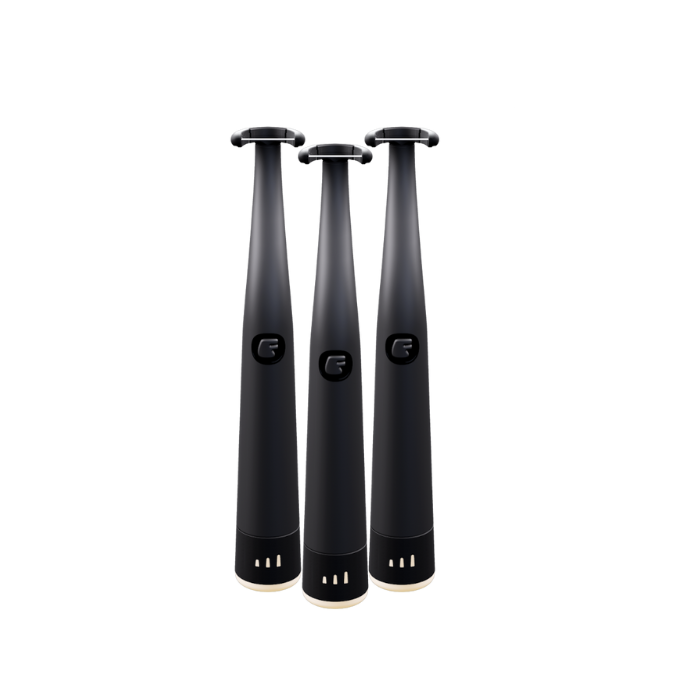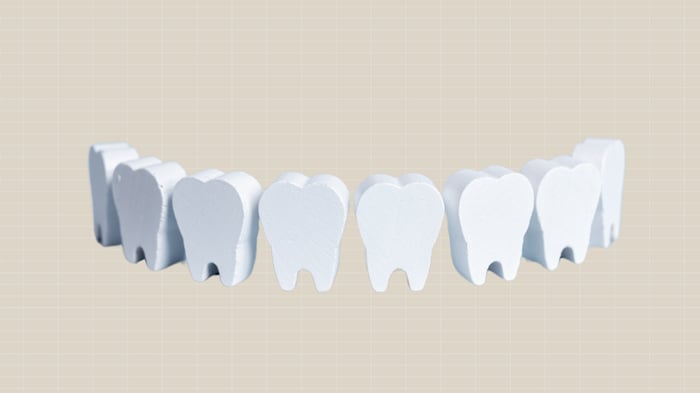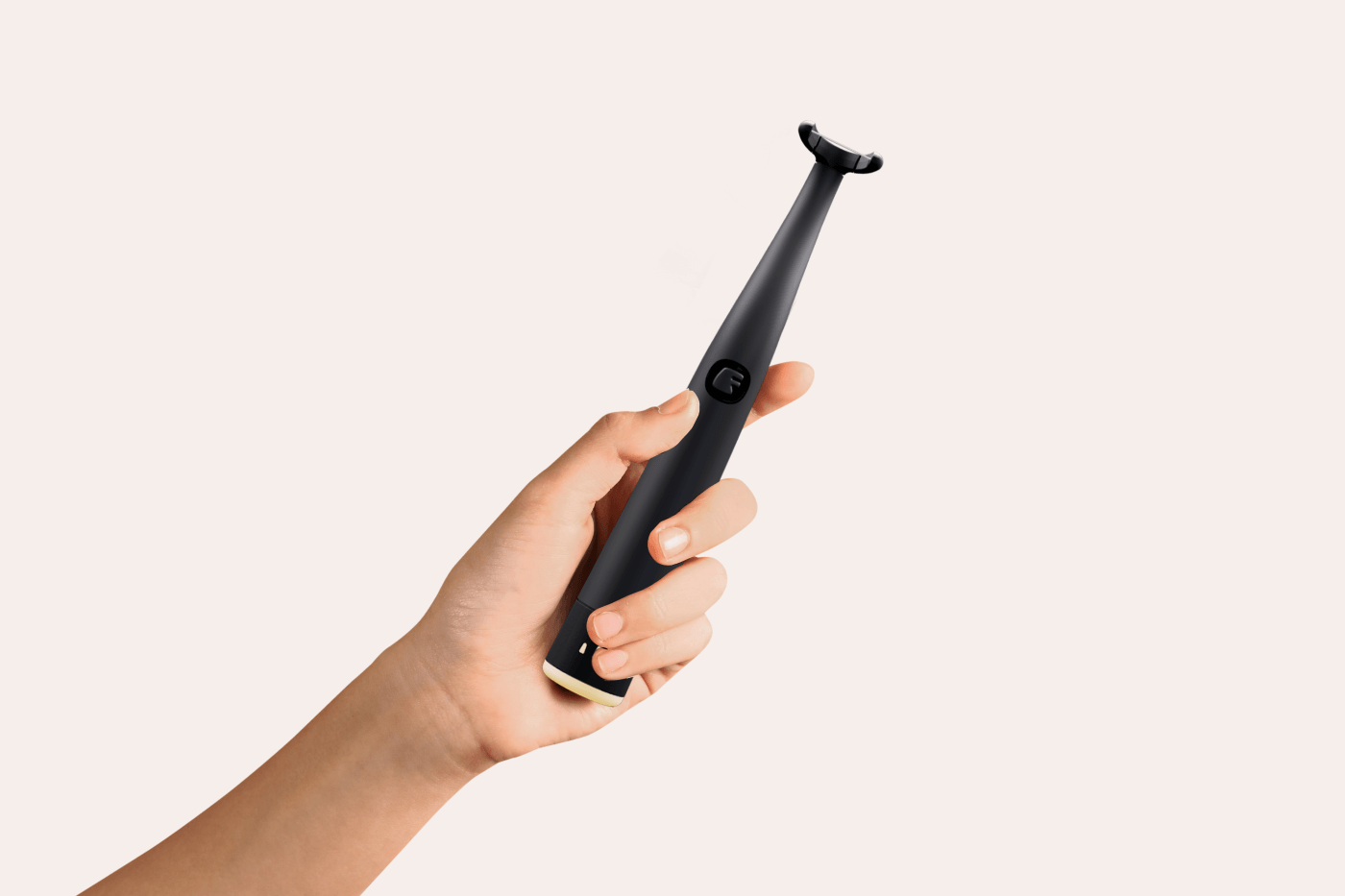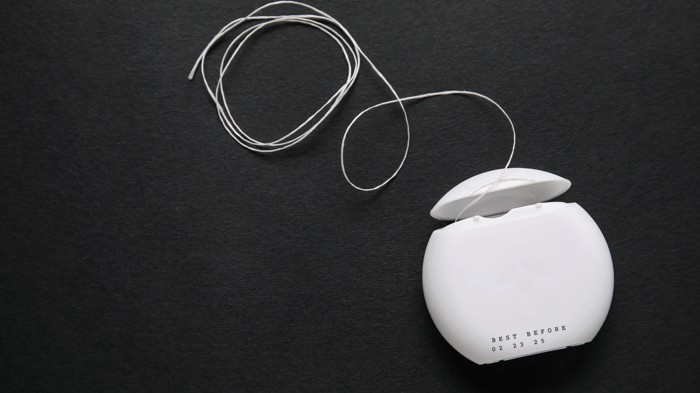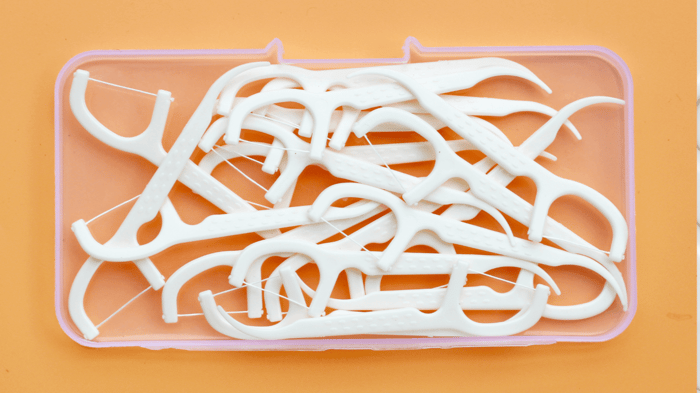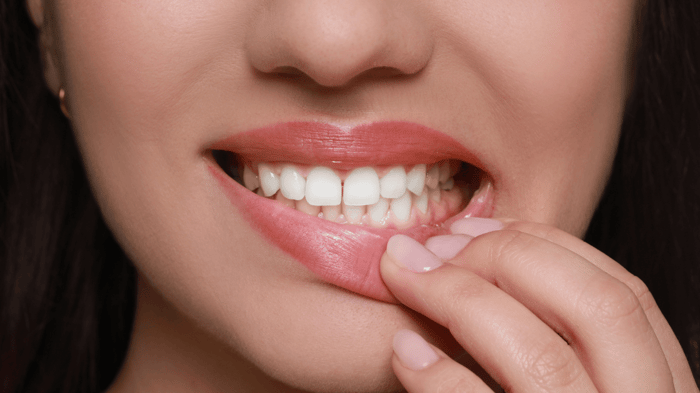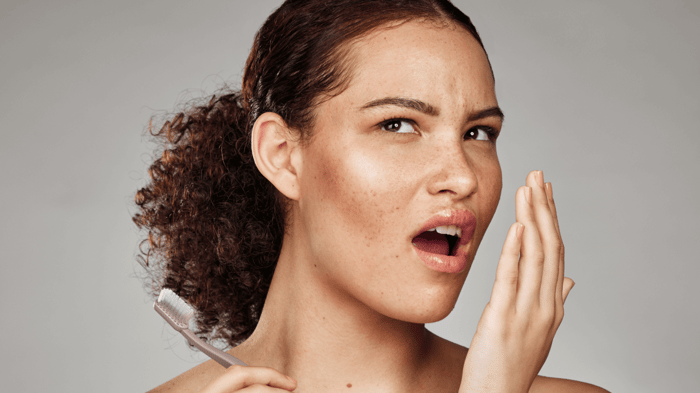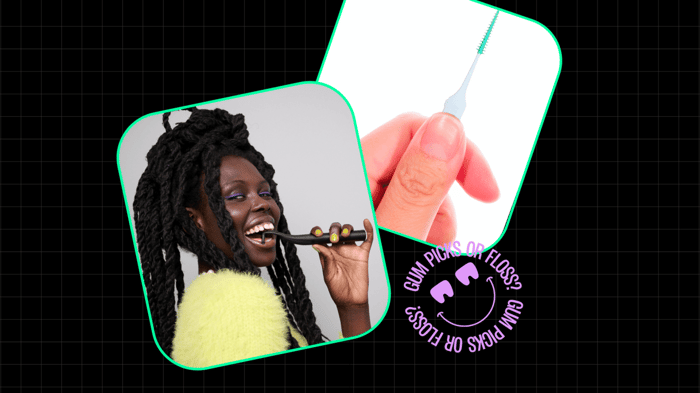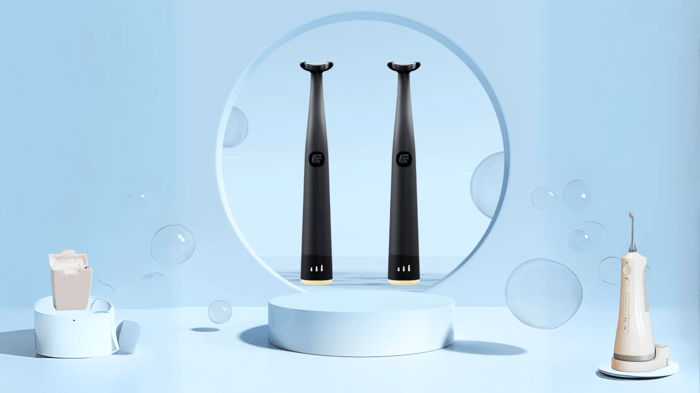Do you want to win the battle against cavities and gum disease but not sure when exactly to use your BFF floss for optimal results? It's time to make those pesky bacteria pack their bags once and for all! Brace yourselves as we take a deep dive into expert tips on the best time to floss, giving you a roadmap to optimal oral hygiene. Ensuring your pearly whites are not just visibly clean, but truly healthy, is much simpler than it seems! Get ready for some revelations that'll make you say "Ah-ha!" next time you're at the sink.
The best time to floss is to establish a set time for it in your daily routine. Whether it's in the morning, afternoon, or evening, consistency is key. Flossing before brushing your teeth can loosen plaque and debris, leading to a more thorough clean. Remember, developing a habit of daily flossing is crucial for maintaining good oral health and preventing issues such as periodontal disease and tooth decay.
The Art of Daily Flossing
Flossing is a critical element of maintaining optimal oral hygiene. It goes beyond just brushing your teeth; it reaches the spaces between your teeth and along the gumline, where toothbrush bristles can't effectively reach. By incorporating the habit of daily flossing into your oral care routine, you can greatly reduce the risk of cavities, gum disease, and other oral health issues.
While it may seem like a simple task, there is an art to flossing effectively. To start, choose a floss that suits your preferences and needs. Dental floss comes in various forms, including traditional string floss, dental tape, floss picks, and electric flossers, like Flaus. Experiment with different options to find one that feels comfortable and easy for you to use consistently.
Once you have your preferred flossing tool, it's essential to follow proper technique. Gently guide the floss between each tooth, making a C-shape around the side of the tooth and sliding it up and down. Be careful not to snap or force the floss into your gums, as this can cause irritation or bleeding. Repeat this process for each tooth, using a fresh section of floss each time.
For example, imagine a scenario where Mary diligently brushes her teeth twice a day but neglects to floss regularly. In this scenario, Mary is only cleaning 60% of her teeth by brushing! The other 40% remain unclean. Over time, plaque accumulates between her teeth and along the gumline, leading to inflammation and eventually gum disease. However, by incorporating daily flossing into her routine, she effectively removes plaque and prevents future oral health issues.
Then you need to choose the best time to floss for you! Investing just a few minutes each day in mastering the art of daily flossing can have long-lasting benefits for your oral health.
Morning Routine Flossing
When considering the best time to floss, we have to think of our daily schedules and when we have time. For some, flossing right after waking up helps to kickstart your day with a fresh and clean feeling in your mouth. By removing any leftover food particles and plaque, morning flossing prevents morning breath and reduces the risk of bacteria growth throughout the day.
Additionally, flossing in the morning sets a positive tone for your oral hygiene routine. Starting your day by taking care of your teeth and gums instills a sense of responsibility and promotes consistency throughout the rest of the day.
Think of it as starting with a clean slate each morning – just like making your bed or enjoying a nutritious breakfast, flossing becomes a healthy habit that sets you up for success.
So, if finding time in the evening for flossing seems challenging or if you prefer a refreshing start to your day, incorporating flossing into your morning routine might be the perfect fit.
After-Meal Flossing
Imagine this scenario: You've just finished a delicious meal, and now it's time for dessert. As you savor that last bite of cake, you can't help but feel the lingering food particles stuck between your teeth. This is where after-meal flossing comes in handy. Flossing immediately after meals helps prevent those bits of food from lingering in your mouth, reducing the risk of plaque buildup and potential tooth decay.
Not only does after-meal flossing contribute to better oral hygiene, but it also provides a sense of freshness and cleanliness. It's like giving your mouth a quick refresh and ensuring that no remnants of your meal remain hidden, ready to wreak havoc on your dental health.
For instance, let's say you had lunch at work and indulged in a dish with spinach or corn. These foods tend to get easily lodged between your teeth, leading to discomfort or even embarrassment. By flossing after your meal, you can remove those stubborn food particles and move forward with confidence, knowing your smile is free from embarrassing surprises.
Now that we've explored the benefits of after-meal flossing, let's dive into another opportune time for maintaining optimal oral hygiene - night-time flossing.
-
According to the American Dental Association (ADA), only 37% of Americans floss on a daily basis.
-
A 2019 study published in the Journal of Periodontology suggested that individuals who floss at least once a day can reduce their risk of periodontal disease by up to 40%.
-
A 2021 survey conducted by Delta Dental Plans Association found that those who floss before bed are more likely (61%) to have better oral health than those who floss at a different time of day (56%).
-
After-meal flossing is a crucial habit to adopt in order to maintain good oral hygiene. It helps prevent plaque buildup and tooth decay by removing lingering food particles from the teeth. Additionally, after-meal flossing provides a sense of freshness and cleanliness, ensuring that no remnants of meals remain hidden in the mouth. By flossing immediately after a meal, individuals can confidently go about their day, knowing that their smile is free from embarrassing surprises. Night-time flossing is also important for optimal oral hygiene.
Night-Time Flossing
Picture yourself winding down after a long day. You're cozy in your pajamas, maybe watching some TV or reading before bed. But before you settle into sleep, there's one crucial step to complete - night-time flossing.
Flossing before bedtime allows you to clear away any accumulated plaque and food particles from throughout the day. It creates a clean slate for your mouth during the night when saliva production decreases. By removing these substances, you help prevent overnight decomposition and reduce the chances of waking up with morning breath or potential tooth decay.
Night-time flossing offers an opportunity to care for your teeth and gums at a more leisurely pace. You can take the time to thoroughly clean between each tooth, reaching those tight spaces where bacteria thrive. The process of flossing before brushing your teeth also loosens plaque and debris, making it easier for the toothpaste to access and clean those hard-to-reach areas during brushing.
An added benefit of night-time flossing is the relaxation it can bring. Many people find that taking a few minutes to floss before bed is a calming ritual that helps signal their bodies it's time to wind down and prepare for sleep. So not only are you improving your oral health, but you're also promoting overall well-being.
Flossing with Gum Disease
If you have been diagnosed with gum disease, flossing becomes even more crucial in maintaining optimal oral hygiene. Gum disease, also known as periodontal disease, is caused by the accumulation of plaque and bacteria along the gumline, leading to inflammation and potential damage to the supporting structures of the teeth. Flossing plays a key role in removing this plaque build-up and preventing further progression of the disease. Regular and thorough flossing can help reduce gum inflammation, improve gum health, and contribute to the overall treatment of gum disease.
Imagine a scenario where a patient has been battling gum disease for several months. Their gums are swollen, bleed easily, and they experience discomfort while eating. By incorporating proper flossing techniques into their oral care routine, such as gently gliding the floss between the teeth and below the gumline, they can effectively remove bacteria and food particles that contribute to gum disease. This diligent flossing routine can lead to a reduction in inflammation, improvement in gum health, and aid in the healing process.
However, it is important to note that flossing alone cannot cure advanced stages of gum disease. Seek professional guidance from your dentist or periodontist who can provide personalized advice on proper flossing techniques and recommend additional treatments necessary for managing your specific condition.
Periods to Refrain from Flossing
While regular flossing is highly recommended for maintaining optimal oral health, there are certain periods when it may be appropriate to refrain from flossing. It's essential to understand these situations to avoid causing harm or exacerbating existing dental issues.
One such period is after dental surgery or procedures where your dentist advises against any form of flossing or vigorous oral hygiene practices. When your gums or mouth are healing after extractions, implant placement, or other invasive procedures, it's crucial to follow your dentist's instructions strictly. In such cases, alternative cleaning methods like rinsing with a prescribed mouthwash or using an antimicrobial mouth rinse may be recommended until the healing process is well underway.
Remember, always consult with your dentist or dental professional for personalized advice on the best oral hygiene practices during specific situations or treatments.
Making Flossing a Regular Habit
Flossing once every 24 hours is crucial for maintaining optimal oral health. It helps remove plaque and bacteria from areas that brushing alone cannot reach, preventing cavities, gum disease, and other oral health issues. However, many individuals struggle to incorporate flossing into their daily routine, resulting in a high prevalence of periodontal disease and tooth decay.
Let's consider Sarah, a busy professional who always found it challenging to make time for flossing. She would often brush her teeth hurriedly and skip the floss altogether. As a result, she started noticing bleeding gums and persistent bad breath. Concerned about her oral health, she decided to make flossing a regular habit.
The first step in making flossing a regular habit is to commit to it wholeheartedly. Understand the importance of flossing and its long-term benefits for your oral health. By embedding this knowledge into your mindset, you can create the motivation needed to prioritize flossing and overcome any initial resistance.
Sarah realized that if she wanted to see improvement in her dental health, she needed to make flossing a non-negotiable part of her daily routine. She acknowledged that it would require dedication and consistency but believed it was worth the effort.
Finding the best time to floss for you is another crucial aspect of building a flossing habit. The American Dental Association (ADA) suggests that the best time to floss is whenever you have the time available – whether it's in the morning, afternoon, or evening.
Sarah experimented with different times throughout the day before finding the best time to floss for her. She discovered that flossing in the morning gave her a fresh start to the day and eliminated bad breath caused by overnight bacteria buildup. Others might find that flossing in the afternoon after lunch can prevent food from decaying between teeth and boost their confidence. Flossing at night is beneficial as it removes plaque before overnight decomposition and allows for a more leisurely flossing experience.
Another option for making flossing a regular habit to find a tool that works for you. Electric Flossers, such as Flaus, use real dental floss and sonic vibrations that produce a floss assist motion and makes flossing as easy as using your electric toothbrush. Flaus allows you to floss up to 5x faster, not put your fingers in your mouth and the vibrations help to stimulate your gum line - which can lead to healthier gums.
Another tip to make flossing a regular habit is to floss before brushing your teeth. Studies have shown that this order provides a better clean as flossing loosens plaque and debris, allowing the toothbrush bristles to reach more surfaces of the teeth.
Sarah adopted this practice of flossing before brushing and noticed a significant improvement. She realized that starting with flossing made her more mindful of the areas that needed attention, ensuring a thorough cleaning during her brushing routine.
Building any habit requires time and effort. It's normal to encounter challenges and setbacks along the way, but don't be discouraged. Stay committed to your goal and remind yourself of the long-term benefits that come with regular flossing.
If you're struggling to make flossing a regular habit or are unsure about the best techniques for effective flossing, don't hesitate to seek professional guidance. Dentists offer expert advice, dental cleanings, and personalized recommendations for optimal oral hygiene practices.
Making flossing a regular habit may require dedication, experimentation, and perseverance. However, by understanding the importance of flossing, finding the right time, adopting proper techniques, and seeking professional guidance when needed, you can successfully incorporate this essential oral hygiene practice into your daily routine.








